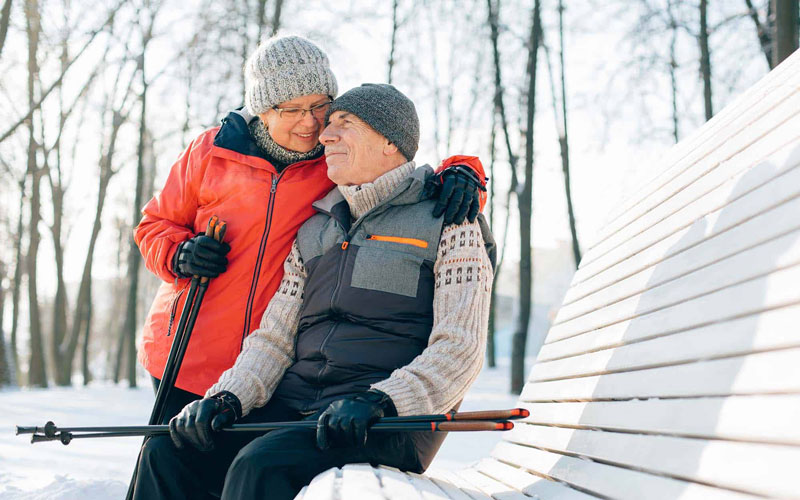Why Do Seniors Feel Cold More Often?
Winter can be a challenging season for seniors, as age-related changes in the body often make them more sensitive to cold. However, with a few proactive measures, you can help ensure your elderly loved one stays comfortable and safe throughout the season.
Why Do Seniors Feel Cold More Often?
Lower Metabolic Rate
Aging slows down metabolism, which reduces the body’s ability to produce heat. This makes maintaining a warm core temperature more difficult, even in relatively mild settings. Learn more about how metabolism changes with age at National Institute on Aging.
Thinner Skin
Over time, the protective fat layer beneath the skin diminishes, leading to reduced insulation and increased sensitivity to cold. Additionally, aging blood vessels lose elasticity, which hampers the body’s ability to conserve warmth.
Medication Side Effects
Certain medications, such as beta blockers prescribed for hypertension, can lower the body’s natural ability to stay warm. If you suspect medications are a factor, consult with a healthcare provider. For a comprehensive guide to medication and cold sensitivity, check out Mayo Clinic’s advice.
Poor Circulation
Health conditions like diabetes or heart disease, as well as decreased physical activity, often lead to reduced circulation. This can result in a persistent chill, especially in extremities like hands and feet.
How to Keep Seniors Warm
1. Dress in Layers
Encourage seniors to wear multiple thin layers, which are more effective at trapping heat than a single thick one. Indoors, cozy socks and slippers are essential, and for outings, don’t forget a hat and scarf. Electric blankets with adjustable settings can also provide added warmth during the night. For more tips on safe heating options, visit AARP’s winter safety guide.
2. Warm Beverages
A simple way to raise body temperature is with warm drinks like tea, coffee, or even hot water with lemon. For caffeine-free options, try herbal teas or warm milk. These not only warm the body but also provide a comforting winter ritual.
3. Eat Regular, Balanced Meals
Good nutrition is vital during colder months. Healthy meals rich in proteins, fats, and essential nutrients help sustain energy and regulate body temperature. If cooking becomes a challenge, explore senior meal delivery services or work with a caregiver to ensure proper nutrition. Find more dietary advice tailored for seniors at Eat Right’s nutrition resources.
When to Seek Medical Advice
While age-related changes often explain cold sensitivity, persistent chills could point to underlying health issues. If your loved one frequently feels cold despite layering up and other measures, it’s time to consult a doctor. Discover additional insights about symptoms and potential causes at WebMD’s cold sensitivity guide.
Conclusion
Helping your elderly loved one stay warm this winter is key to their comfort and overall health. With thoughtful steps like layering clothes, serving warm beverages, and ensuring a nutritious diet, you can make the colder months more enjoyable. If you suspect underlying medical issues, don’t hesitate to seek professional advice.
For more winter safety tips for seniors, explore SeniorLiving.org’s comprehensive winter care guide.

